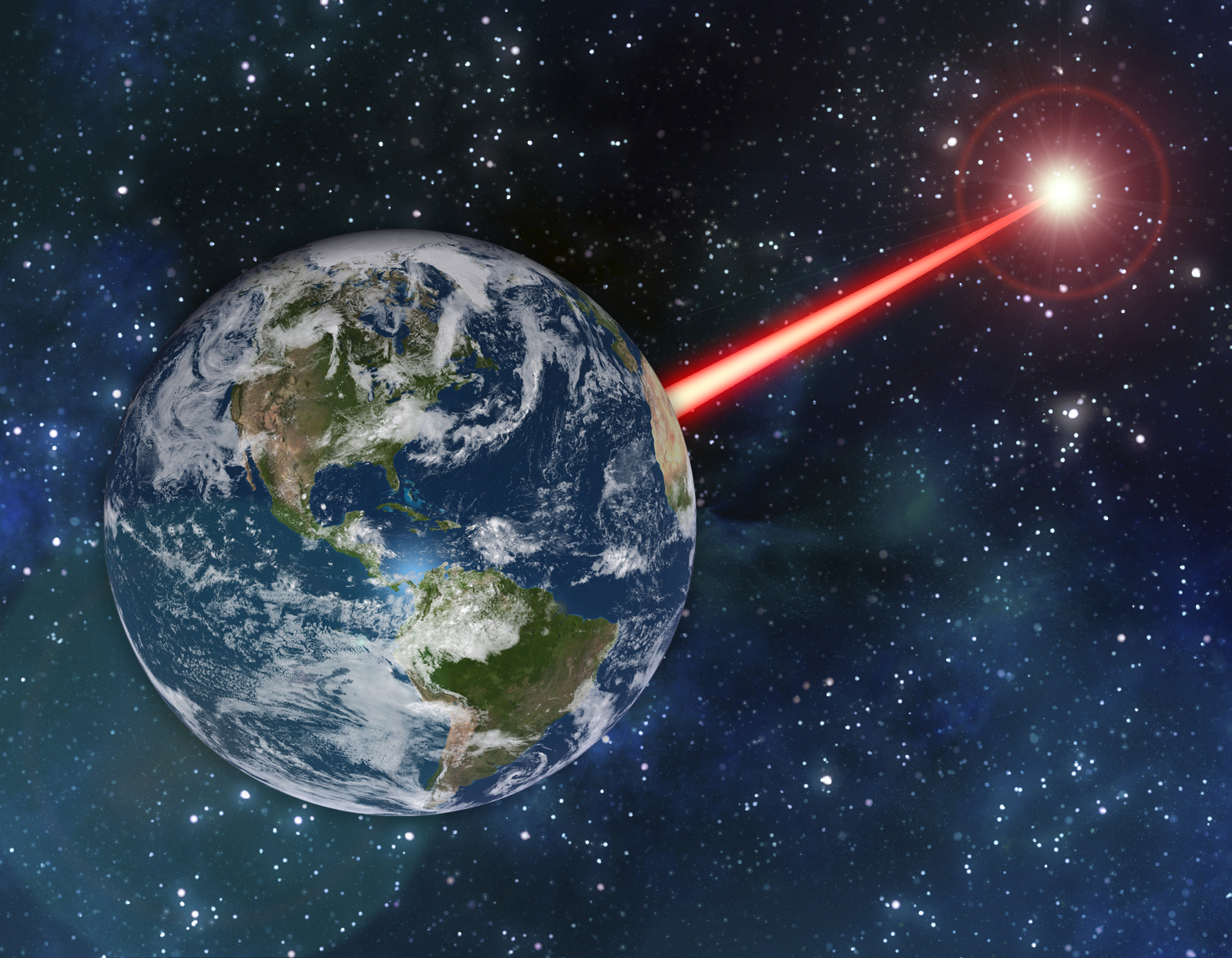Here we are: a signal for extraterrestrial civilizations
Would it be possible to alert extraterrestrial civilizations to our presence in the universe? Yes, says a feasibility study that was carried out by MIT doctoral candidate, James Clark, and was published in The Astrophysical Journal. Clark combined two already available technologies: a strong laser with an output power of 1 or 2 MW, similar to, for example, the U.S. Air Force’s Airborne Laser, and a large telescope with 30-meter (100-feet) or 45-meter (150-feet) optics, like those already in construction.
With a 30-meter telescope, a 1-MW laser would be sufficient to generate a signal that would be visible by astronomers on Proxima Centauri b. With a 2-MW laser and 45-meter optics, the signal could even travel 40 light-years to the Trappist-1 system. But that only applies to direct observations. If extraterrestrial astronomers measure the infrared radiation from our Sun, these laser-and-optics constructions could provide detectable deviations that would be noticeable to observers even 20,000 light-years away.
However, the construction of such a cosmic flashlight would not be trivial. The invisible laser (because it is infrared) generates a flux density of 800 watts per square meter. This energy would be more than enough to cause damage to any cameras on space probes it happened to strike. The freely available paper provides more details and calculations for different laser and telescope configurations. The combination would also be suitable for data transmissions; in the weakest case (Proxima b), a data rate of 53 kbps would be possible – a significantly faster rate than was possible at the start of the Internet.
Of course, the question is whether it would be wise to tell other civilizations that we’re here. As an optimistic science-fiction author, I say: yes, no matter what.
